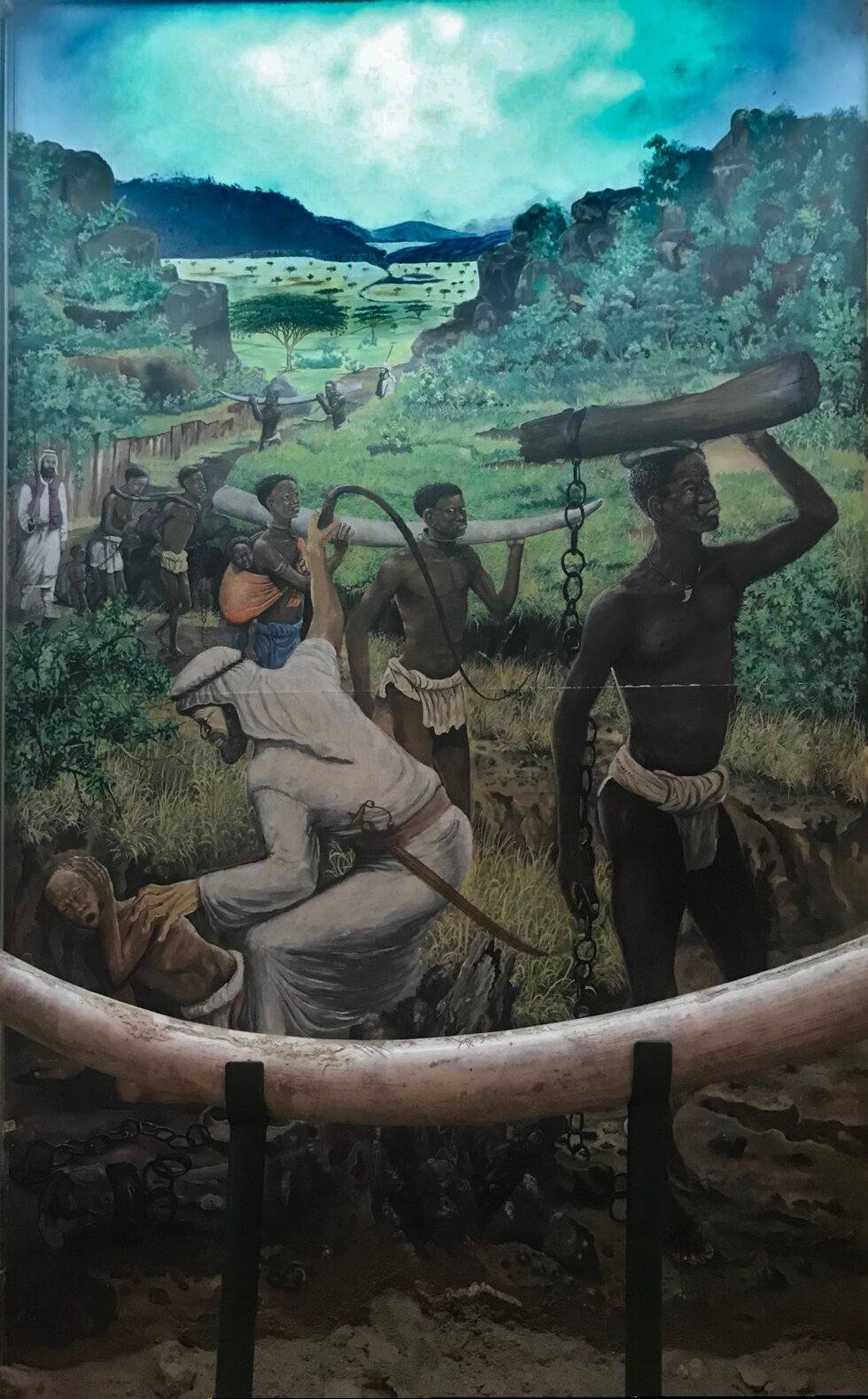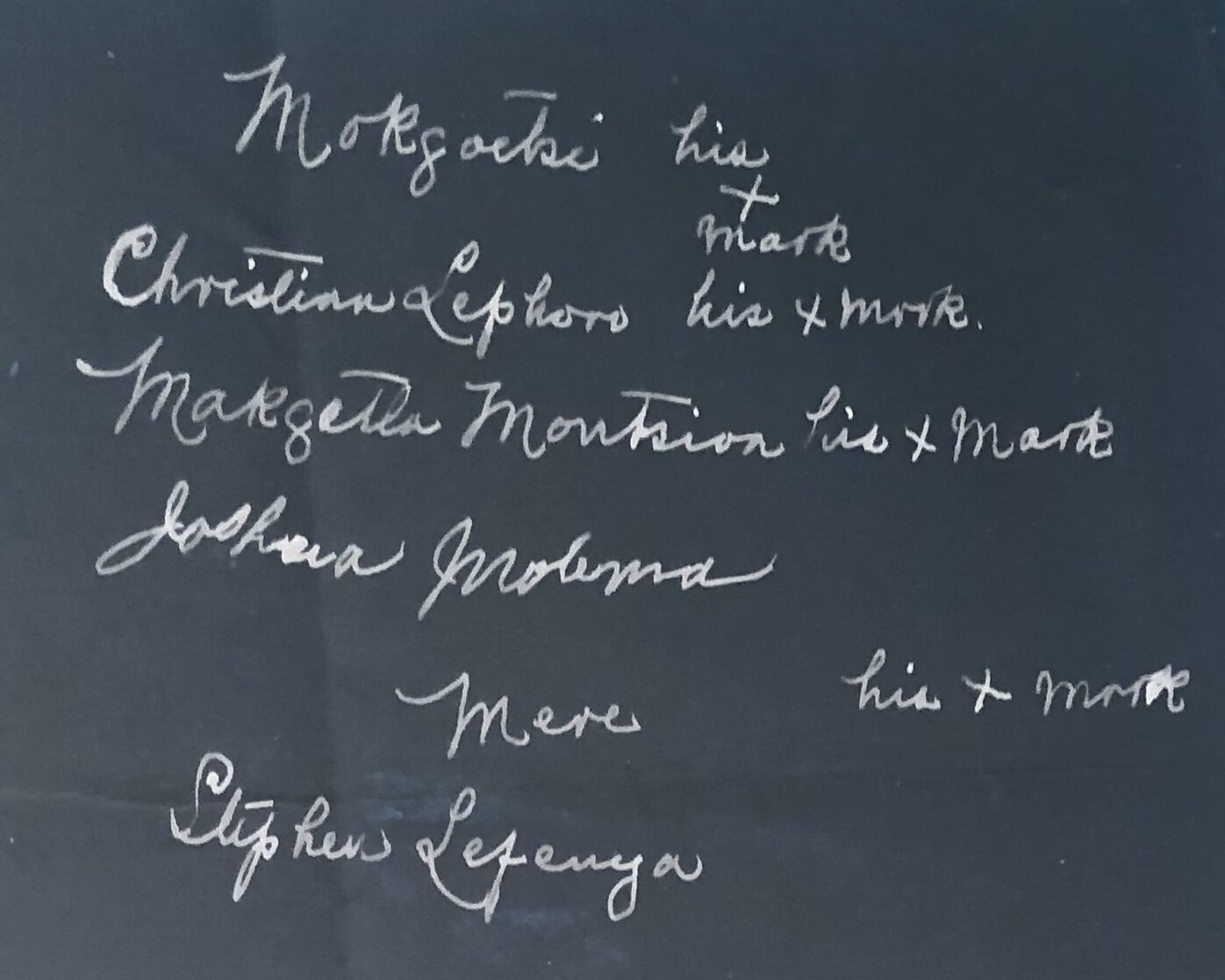Overview
Land treaties, as a European colonial technology, initiated the sundering of African sovereignty for the purposes of controlling natural resources and served as the basis for colonial influence and administration. To explore the history of such land treaties in Africa, our ACLS Digital Justice Seed Grant project brought together scholars and archivists with relevant expertise in African Studies and the digital humanities (DH). Our work with such treaties engaged a body of writing that deserves to be included in contemporary criticism of literatures from the African continent.
Two scholars from the University of Nebraska-Lincoln, Ng’ang’a Wahu-Mũchiri (Associate Professor; Director, The Ardhi Initiative) and Adrian S. Wisnicki (Professor; Lead Developer, One More Voice) united experience from ongoing DH initiatives centered on Africa to lead the project. Planning also drew upon the expertise of stakeholders in Kenya and the UK: Chao Tayiana Maina (Director, African Digital Heritage Foundation; Co-founder, Museum of British Colonialism), Jo Ichimura (Archivist, Special Collections, SOAS Library, University of London), and Joanne Ruth Davis, (Research Associate, SOAS, University of London and University of Johannesburg). Mziwanda Banda (Author, Editor, and Translator, NewGlobe, Kenya) translated one of the project's critical essays into Kiswahili.

Anonymous. [Slave Trade]. Painting, [twentieth century]. On display. National Museums of Kenya, Nairobi, Kenya. Creative Commons Attribution 4.0 International Deed (CC BY 4.0). This image depicts European imperialism and its hunger for African bodies and natural resources. In the eighteenth and nineteenth centuries, ivory supply lines depended upon, and were foundational to, enslavement of black bodies. Markets for enslaved Africans, in the Americas, the Gulf, and across what is now called the Middle East, incentivized the creation of dual trade routes. These enslaved bodies – which could be sold for profit – ferried ivory from the hinterland to the coast. Ivory and ivory products served as a secondary – yet highly lucrative – revenue stream. The trade in ivory was itself a product of, and enhanced by, the creation of markets for European manufactured goods in Africa.
Our project ran from 1 October 2022 to 30 June 2024. The project centered on strengthening the collaboration between stakeholders in Kenya and Britain. The inclusion of these stakeholders grew out of One More Voice’s emphasis on building global partnerships. In pursuing its objective, the project also prototyped workflows and collaborative partnerships to re-orient academic practices largely based in, and arising from, the United States and Britain to co-create knowledge ethically with practitioners from the Global South.
Additionally, the initiative spoke to African land reform policies and provided important historical contexts for land reform stakeholders, while also challenging the monopoly of European languages and practices in the digital creation of knowledge concerning the African continent. Finally, the initiative addressed the critical need for scholars of Black African descent to hold DH leadership positions by including a Kenyan scholar as one of the two co-PIs, a Kenyan digital heritage specialist as one of the key stakeholders, and a Kenyan language expert as the translator.
Outcomes
Critical Materials
Critical Editions
Activities
- (Britain) Collaborator meetings and site visits to the British Library; the Bodleian Libraries, Oxford University; Special Collections, SOAS Library, the National Library of Scotland; and the National Archives; and a presentation at the British Association for Victorian Studies (BAVS) conference (Feb. and Aug. 2023)
- (Kenya) Collaborator meetings and site visits to the Nairobi Gallery, the Karen Blixen Museum, and the Nairobi National Museum (Mar. and Oct. 2023)
